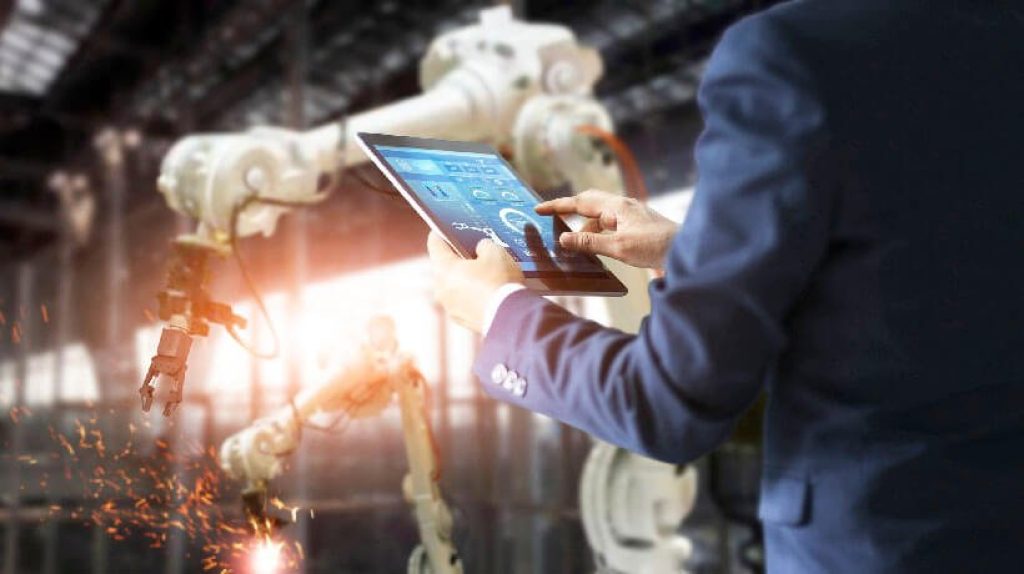
With time, technology will continue to advance. As a result, a gap will continue to exist between your current knowledge and what you need to know in the future. Advances in technology are bound to cause skill gaps. Which if not addressed in a timely fashion, could pose a serious threat to many industries, especially the manufacturing industry. The manufacturing sector has a significant impact on a country’s GDP, making it imperative that manufacturers prepare their employees for future employment. Employers often replace existing employees with new ones with updated knowledge. As a consequence, their recruitment costs increase unnecessarily. As technology continues to evolve, these costs increase exponentially.
Therefore, it is a good idea to train the employees you already have and equip them with skills that will enable them to meet upcoming challenges and achieve the organization’s goals. You can achieve this goal by implementing a learning management system (LMS) that assists your employees in learning new technologies.
In simple words, an LMS bridges the skills gap between the manufacturing and service industries by providing effective training to employees. These learning systems not only provide employees with training but also boost their self-confidence and productivity. Compare LMS pricing and check out which one is good for your business. For example, you can about Thought Industries’ pricing model on their website and determine the best plan for you. Know more about the pricing model here.
While you compare and choose the best LMS for your business, the following features should be taken into consideration:
- Onboarding tool
- Content management
- Flexible learning functionality
- Gamification
- Individual development plans
- Regular Updates
- The Gap Analysis Tool
- Streamlined reporting features
- Automation of training tasks
- Responsive design
Choosing an LMS that has these features will ensure that you get what you are looking for.
Listed below are some reasons why manufacturers should invest in learning management systems.
Table of Contents
Helps in Upskilling

Source: blog.avilar.com
Clearly, the first and most obvious benefit of an LMS is upskilling the talent you already have. A growing skill gap is created as technology advances and as time passes. To ensure that employees are adequately trained, a learning management system (LMS) is highly recommended. The choice of an LMS should be carefully considered by employers who are looking to improve their operations.
Supply Chain Management
It is of vital importance to manufacturing to keep supply chain management (SCM) in place. As a result, any breakdown in the production process is detected. Due to the fact that a lot of manufacturing companies procure raw materials from around the world, it is critical that supply chain department personnel are familiar with SCM codes and procedures. Utilizing an e-learning system that complies with FDA, EPA, and OSHA regulations, employees can be taught about SCM concepts and be informed about new aspects of the SCM department.
Better compliance training

Source: elearningindustry.com
Considering the fact that manufacturing involves operating highly technical and complex equipment, it is critical that everyone using such equipment is properly trained to do so safely. This applies to both existing employees and new hires. It is your responsibility as an employer to train your employees in safety-related matters. You cannot be negligent when it comes to safety training, and your LMS can also help you to improve compliance. Using an LMS for compliance training helps in documentation of the training program which can be used as a documented proof for compliance violation investigations.
LMSs can enable L&D departments to make faster changes in compliance training material in case there are important updates on the existing standards and regulations.
In addition, your LMS helps you incorporate both online and classroom learning methods, allowing employees to learn complex machines in a theory as well as in practical ways.
Offers business intelligence

Source: elearningindustry.com
When training is given through a learning management system, tracking progress of the learners becomes easier. The tracked data can be used by the L&D departments of manufacturing facilities to understand where the employees stand when it comes to compliance, machinery operation, and other training programs. This can be in turn used to create detailed performance reports to understand what is working and what isn’t to finally eradicate the painpoints and improve the training for areas that are necessary.
Using an LMS can help the manufacturing industry provide more precise training to their employees and solve the issues they face without having to ‘waste’ any unnecessary time or resources.
More Scalable Training
Unlike other industries, the manufacturing industry deals with heavier machinery and complex technology. Thus, it becomes important to train the employees better as any kind of mishandling can result in a huge loss of money. Designing the courses for such training also becomes a huge deal as the courses require test handling such expensive machinery. To scale such training programs can be difficult as the bigger the learner base, the more the chances for mishandling and malfunctioning. That is why usual L&D practices for the manufacturing industry requires designing the course and testing in on a small scale and then scaling it up according to the requirements.
LMSs for that matter are flexible when it comes to scaling up training programs and thus, can help the L&D professionals to easily scale up the program for a significant number of learners in no time while ensuring that no resource is wasted.
More Standardized Training

Source: rightpeople.com.au
When it comes to the manufacturing industry, it is important that the training is that is provided to the employees is standardized. Standardized training ensures that there is consistency and reliability in the output, working process, and daily operations of the facilities.
Using an LMS can especially benefit the manufacturing industry in this area as it can ensure that the same content is being distributed among all facilities no matter where they are located geographically. It can also make sure that the training material can be reused effectively for the new batches of employees and there is a consistency in their work process that matches the earlier processes.
Conclusion
A country’s manufacturing sector is one of its biggest contributors to its economy, which means its employees must be highly skilled and efficient in order to meet the demands of the future. The importance of staying informed about technological advancements in the future cannot be overstated. As a manufacturer, if you want to ensure that your employees have all the knowledge they need, you need to find an appropriate learning management system.







